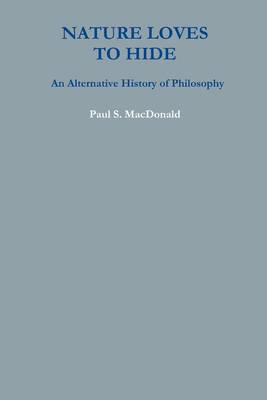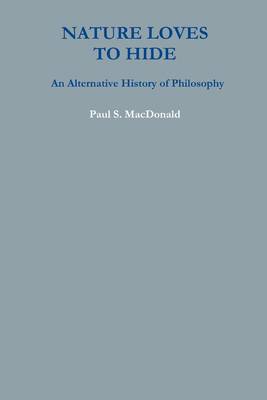
Door een staking bij bpost kan je online bestelling op dit moment iets langer onderweg zijn dan voorzien. Dringend iets nodig? Onze winkels ontvangen jou met open armen!
- Afhalen na 1 uur in een winkel met voorraad
- Gratis thuislevering in België vanaf € 30
- Ruim aanbod met 7 miljoen producten
Door een staking bij bpost kan je online bestelling op dit moment iets langer onderweg zijn dan voorzien. Dringend iets nodig? Onze winkels ontvangen jou met open armen!
- Afhalen na 1 uur in een winkel met voorraad
- Gratis thuislevering in België vanaf € 30
- Ruim aanbod met 7 miljoen producten
Zoeken
€ 39,45
+ 78 punten
Omschrijving
An alternative history of philosophy has endured as a shadowy parallel to standard histories, although it shares many of the same themes. It has its own founding texts in the late ancient Hermetica, from whence flowed three broad streams of thought: alchemy, astrology, and magic. These thinkers' attitude toward philosophy is not one of detached speculation but of active engagement, even intervention. It appeared again in the European Middle Ages, in the Renaissance with Rabelais, Paracelsus, Agrippa, Ficino, and Bruno; and in the early modern period with John Dee, Robert Fludd, Jacob Böhme, Thomas Browne, Kenelm Digby, van Helmont, and Isaac Newton. In the 18th-19th centuries, this book considers Lichtenberg's Fragments, Berkeley's Siris, Swedenborg, Hegel, von Baader, and great Romantics such as Novalis, Goethe, S. T. Coleridge, and E. A. Poe, as well as Nietzsche; and in the 20th century it turns to the great modernist literature of Fernando Pessoa, Robert Musil, Ernst Bloch, and P. K. Dick.
Specificaties
Betrokkenen
- Auteur(s):
- Uitgeverij:
Inhoud
- Aantal bladzijden:
- 474
- Taal:
- Engels
Eigenschappen
- Productcode (EAN):
- 9780359197903
- Verschijningsdatum:
- 1/11/2018
- Uitvoering:
- Paperback
- Formaat:
- Trade paperback (VS)
- Afmetingen:
- 152 mm x 229 mm
- Gewicht:
- 689 g

Alleen bij Standaard Boekhandel
+ 78 punten op je klantenkaart van Standaard Boekhandel
Beoordelingen
We publiceren alleen reviews die voldoen aan de voorwaarden voor reviews. Bekijk onze voorwaarden voor reviews.











